1. Kissing to Be Clever (1982)
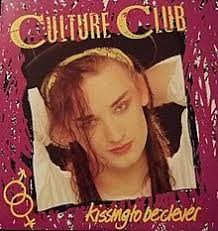
Culture Club’s debut album, Kissing to Be Clever (1982), catapulted the band into international stardom with its unique blend of new wave, pop, and soul influences. Led by the charismatic Boy George, the album features catchy melodies and poignant lyrics that explore themes of love, identity, and societal issues. Tracks like “Do You Really Want to Hurt Me” and “Time (Clock of the Heart)” became instant classics, showcasing Boy George’s distinctive voice and the band’s eclectic musical style.
Produced by Steve Levine, the album received critical acclaim and commercial success, cementing Culture Club’s reputation as pioneers of the 1980s music scene. Kissing to Be Clever remains a timeless classic, beloved by fans old and new for its infectious energy and enduring relevance in pop culture.
Click here to purchase Kissing to Be Clever
2. Colour by Numbers (1983)
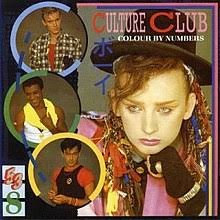
Colour by Numbers (1983), solidified their status as pop icons of the 1980s. With hits like “Karma Chameleon” and “Church of the Poison Mind,” the album seamlessly blends pop, soul, and new wave influences, showcasing Boy George’s distinctive vocals and the band’s eclectic musical style. Produced by Steve Levine, Colour by Numbers received widespread acclaim for its catchy melodies and introspective lyrics exploring themes of love, identity, and societal issues.
The album’s vibrant artwork and fashion-forward image further contributed to its cultural impact, making Culture Club synonymous with the flamboyant and innovative spirit of the decade. Colour by Numbers remains a cornerstone of 1980s pop music, cherished by fans for its infectious tunes and lasting influence on contemporary music and fashion trends.
Click here to purchase Colour by Numbers
3. Waking Up with the House on Fire (1984)
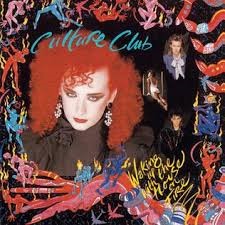
Waking Up with the House on Fire (1984), marked a departure from their previous sound while maintaining their trademark blend of pop and soul. Produced by veteran hitmaker Arif Mardin, the album reflects a more mature and experimental phase for the band. Hits like “The War Song” and “Mistake No. 3” showcase a darker and more introspective lyrical tone, exploring themes of conflict and personal struggle.
Despite mixed critical reception, the album achieved commercial success, continuing Culture Club’s streak of chart-topping hits. Waking Up with the House on Fire captures a pivotal moment in the band’s evolution, balancing their signature sound with new musical directions. With its bold experimentation and introspective themes, the album remains a significant chapter in Culture Club’s discography, resonating with fans for its honesty and musical diversity.
Click here to purchase Waking Up with the House on Fire
4. From Luxury to Heartache (1986)
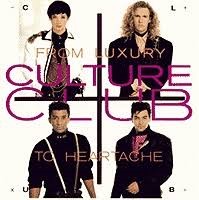
From Luxury to Heartache (1986), marked a significant evolution in their sound, exploring new musical territories while staying true to their pop roots. Produced by Stewart Levine, known for his work with artists like Simply Red and Jamie Cullum, the album blends pop, rock, and dance elements with Boy George’s distinctive vocals. Hits like “Move Away” and “God Thank You Woman” showcase the band’s ability to adapt to changing musical landscapes while maintaining their unique identity.
Despite internal tensions and struggles, From Luxury to Heartache received positive reviews for its musical innovation and emotional depth. The album’s cover art, featuring a Renaissance-inspired painting, reflects its ambitious artistic vision. From Luxury to Heartache remains a testament to Culture Club’s resilience and creativity, appealing to both longtime fans and new listeners exploring their iconic discography.
Click here to purchase From Luxury to Heartache
5. Don’t Mind If I Do (1999)
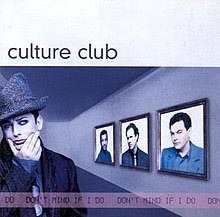
Don’t Mind If I Do (1999), marked their return to the music scene after a hiatus. Produced by Culture Club themselves along with Youth and Glen Nightingale, the album blends their signature pop sound with modern influences, appealing to both longtime fans and new audiences. Tracks like “I Just Wanna Be Loved” and “Your Kisses Are Charity” showcase Boy George’s soulful vocals and the band’s infectious melodies. Despite mixed critical reception, the album sold well and reaffirmed Culture Club’s enduring appeal.
Don’t Mind If I Do reflects the band’s evolution, incorporating contemporary production techniques while staying true to their distinctive style. With its catchy tunes and heartfelt lyrics, the album remains a nostalgic favorite for fans who welcomed Culture Club’s return to the forefront of pop music in the late 1990s.
Click here to purchase Don’t Mind If I Do

